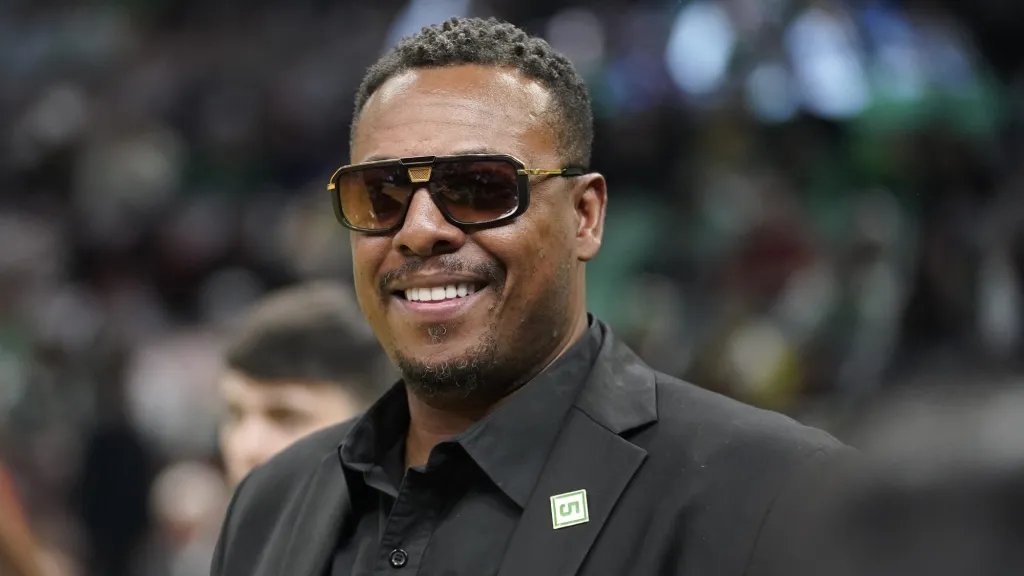The California Highway Patrol’s Ongoing Investigation of Paul Pierce’s Suspected DUI
In the dim, chaotic hours of Tuesday night, a Range Rover SUV stood eerily still on the northbound lanes of the 101 Freeway, its driver, former NBA star Paul Pierce, slumped over the wheel, seemingly oblivious to the world around him. The enigma of a man who once commanded the basketball court now lay exposed, as California Highway Patrol (CHP) officers discovered him asleep beneath the Los Angeles skyline, prompting immediate concerns about alcohol impairment and public safety.
The Incident Unfolds
At approximately 10:38 p.m., officers arrived at the scene of a multi-vehicle collision. Four out of six lanes had been closed while officers conducted their investigation, allowing a narrow window for curious onlookers to catch glimpses of the aftermath. Yet, as traffic began to flow once again around 11:35 p.m., a deeper issue loomed as law enforcement noticed Pierce’s vehicle, leading to an investigation that would not only scrutinize his actions but also invite discussions on celebrity responsibility and accountability.
Signs of Impairment
Upon approaching the vehicle, the officers recognized prominent signs of alcohol impairment, which included slurred speech and the unmistakable scent of alcohol emanating from the vehicle. Consequently, the 45-year-old Pierce was arrested and swiftly booked at the CHP Central Los Angeles office on suspicion of driving under the influence.
“The facts are under review,” asserted Sergeant Cuevos, a supervisor with the CHP, signifying the nuanced layers that often cloak such public offenses. The case will be forwarded to the Los Angeles City Attorney’s Office, where the potential for criminal charges remains on the table.
The Weight of a Legacy
Paul Pierce, born in Oakland and raised in Inglewood, transformed into an NBA icon over his illustrious 19-season career, predominantly spent with the Boston Celtics. His accolades include a 2008 NBA Championship and a spot in the Naismith Memorial Basketball Hall of Fame—a testimony to his indelible mark on the league. However, the juxtaposition of his celebrated past and the troubling events of that fateful night raises a host of questions about the responsibilities that accompany fame.
- What impact does celebrity status have on public perception of legal accountability?
- How do high-profile individuals navigate the pitfalls of substance abuse in the spotlight?
- What role do mental health and personal struggles play in celebrity behavior?
Expert Opinions and Data Insights
Dr. Lisa Nguyen, a clinical psychologist specializing in the mental health of athletes, suggested, “When celebrities face issues like substance abuse, it’s not just a personal battle; it has far-reaching ramifications for society, especially young fans looking up to them.” This sentiment resonates particularly in a culture that often idolizes athletic prowess while overlooking the human vulnerabilities behind the heroics.
A recent study published in the Journal of Celebrity Psychology found that approximately 60% of high-profile individuals struggle with substance-related behaviors post-retirement, emphasizing a need for systemic support structures. “The pressure to maintain a certain image can be overwhelming, leading some to self-medicate,” stated Marcus Hale, a sports sociologist who has studied these trends extensively.
Societal Reflections
This incident not only brings Paul Pierce’s personal challenges into the spotlight but also invites a larger conversation about societal expectations and the consequences of poor choices. The collective response to his situation—part outrage, part sympathy—reflects how society grapples with its heroes as they confront their own fallibilities.
Public figures like Pierce wield immense influence, often acting as role models in various communities. Therefore, their missteps can trigger discussions about ethics, societal norms, and the gravity of their actions. While Pierce’s fallout may be scrutinized under a magnifying glass, the lessons drawn from such incidents could hold crucial implications for both individuals and society.
In a sense, these quieter scandals not only expose the complexities of fame but also compel broader discourse on mental health and substance abuse issues endemic to the high-pressure world of sports. As the investigation continues and possibly unfolds into legal ramifications, the basketball legacy of Paul Pierce stands at a critical juncture—the man behind the player is now entwined with the gravity of real-world consequences.
The captivating story of Paul Pierce continues, revealing multifaceted layers to celebrity culture and the struggles therein. As he closes this chapter on an iconic career, the lessons learned extend beyond the court, beckoning future discussions on personal accountability, mental health awareness, and the persistent question of what it means to truly be a role model.





